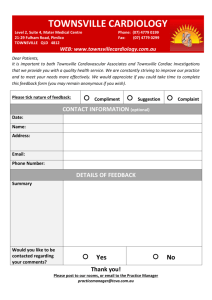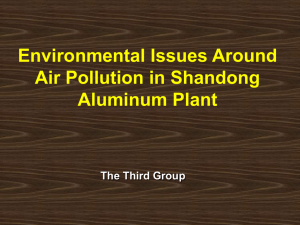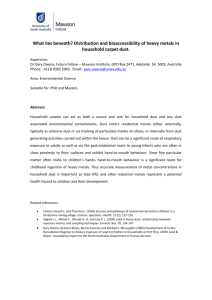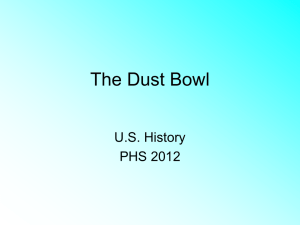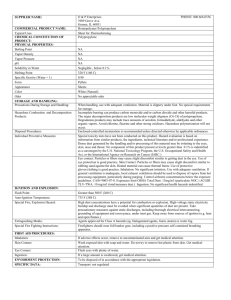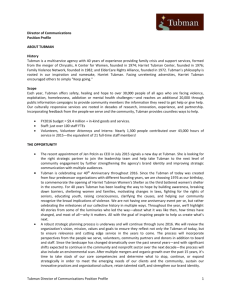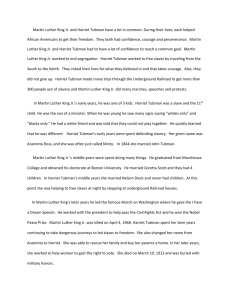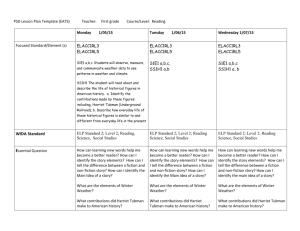Support for Contaminated Dust Report Welcomed
advertisement
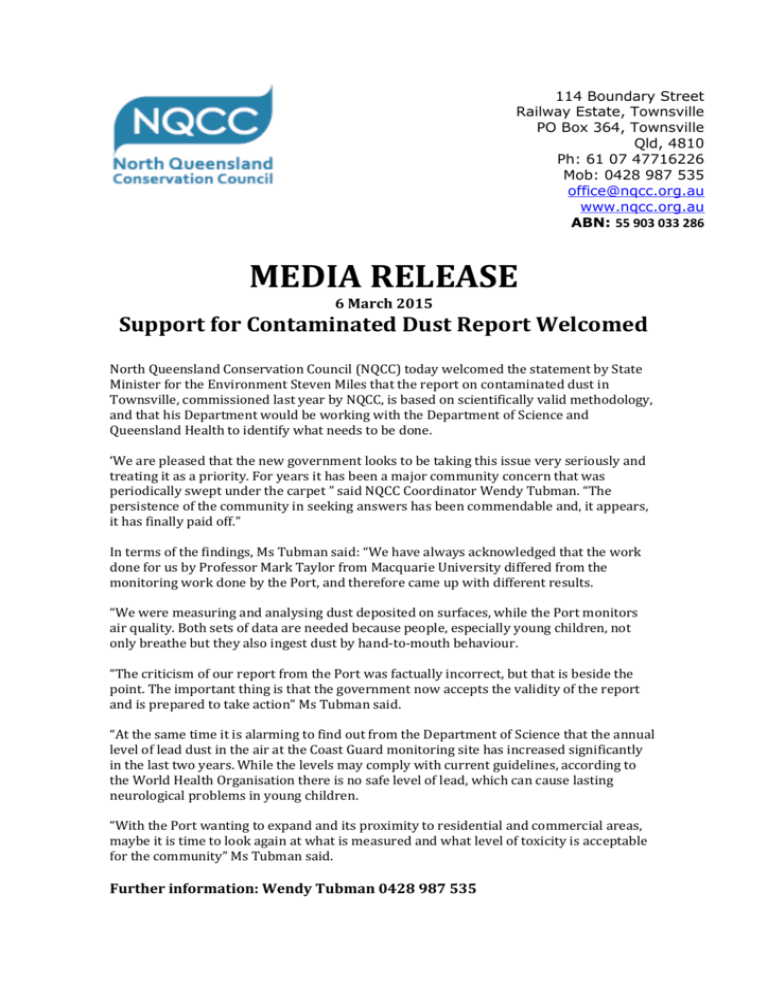
114 Boundary Street Railway Estate, Townsville PO Box 364, Townsville Qld, 4810 Ph: 61 07 47716226 Mob: 0428 987 535 office@nqcc.org.au www.nqcc.org.au ABN: 55 903 033 286 MEDIA RELEASE 6 March 2015 Support for Contaminated Dust Report Welcomed North Queensland Conservation Council (NQCC) today welcomed the statement by State Minister for the Environment Steven Miles that the report on contaminated dust in Townsville, commissioned last year by NQCC, is based on scientifically valid methodology, and that his Department would be working with the Department of Science and Queensland Health to identify what needs to be done. ‘We are pleased that the new government looks to be taking this issue very seriously and treating it as a priority. For years it has been a major community concern that was periodically swept under the carpet ” said NQCC Coordinator Wendy Tubman. “The persistence of the community in seeking answers has been commendable and, it appears, it has finally paid off.” In terms of the findings, Ms Tubman said: “We have always acknowledged that the work done for us by Professor Mark Taylor from Macquarie University differed from the monitoring work done by the Port, and therefore came up with different results. “We were measuring and analysing dust deposited on surfaces, while the Port monitors air quality. Both sets of data are needed because people, especially young children, not only breathe but they also ingest dust by hand-to-mouth behaviour. “The criticism of our report from the Port was factually incorrect, but that is beside the point. The important thing is that the government now accepts the validity of the report and is prepared to take action” Ms Tubman said. “At the same time it is alarming to find out from the Department of Science that the annual level of lead dust in the air at the Coast Guard monitoring site has increased significantly in the last two years. While the levels may comply with current guidelines, according to the World Health Organisation there is no safe level of lead, which can cause lasting neurological problems in young children. “With the Port wanting to expand and its proximity to residential and commercial areas, maybe it is time to look again at what is measured and what level of toxicity is acceptable for the community” Ms Tubman said. Further information: Wendy Tubman 0428 987 535
